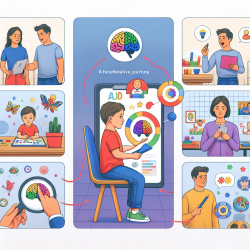Introduction: A Changing Landscape in Special Education
In the ever-evolving field of special education, the demand for innovative solutions to address the diverse needs of students is more critical than ever. As Special Education Directors, we often find ourselves navigating the complexities of providing adequate support amidst budget constraints and staffing shortages. In this context, online therapy services have emerged as a beacon of hope, offering a way to enhance our educational offerings while ensuring compliance with legal standards.
The Rise of Online Therapy Services
Online therapy, or telepractice, has gained traction in recent years, providing schools with access to specialized services that may otherwise be unavailable. This approach not only addresses therapist staffing shortages but also offers flexibility and convenience for students and families. Companies like TinyEYE are leading the charge, providing online speech therapy and other critical services to schools across the globe.
Benefits of Online Therapy for Special Education
Implementing online therapy services can be transformative for special education programs. Here are some key benefits:
- Accessibility: Students in remote or underserved areas can receive quality therapy services without the need for travel.
- Consistency: Online platforms ensure consistent delivery of services, reducing interruptions due to therapist shortages.
- Cost-Effectiveness: By utilizing online services, schools can optimize their budgets while still providing essential support to students.
- Customization: Therapy sessions can be tailored to meet the individual needs of each student, enhancing their learning experience.
Addressing Concerns and Ensuring Quality
As with any new approach, there are concerns about the efficacy and quality of online therapy. However, advancements in technology and training have made it possible to deliver high-quality services that meet or exceed traditional in-person therapy. Furthermore, platforms like TinyEYE offer extensive resources and support to ensure that both therapists and students can make the most of their online interactions.
Conclusion: A Path Forward
For special education funding agencies and school districts, embracing online therapy services can be a game-changer. By providing access to specialized support, we can inspire confidence in parents and foster a more inclusive and effective educational environment for all students. As we continue to explore the potential of online therapy, we must remain committed to innovation and collaboration, ensuring that every child receives the support they need to thrive.










